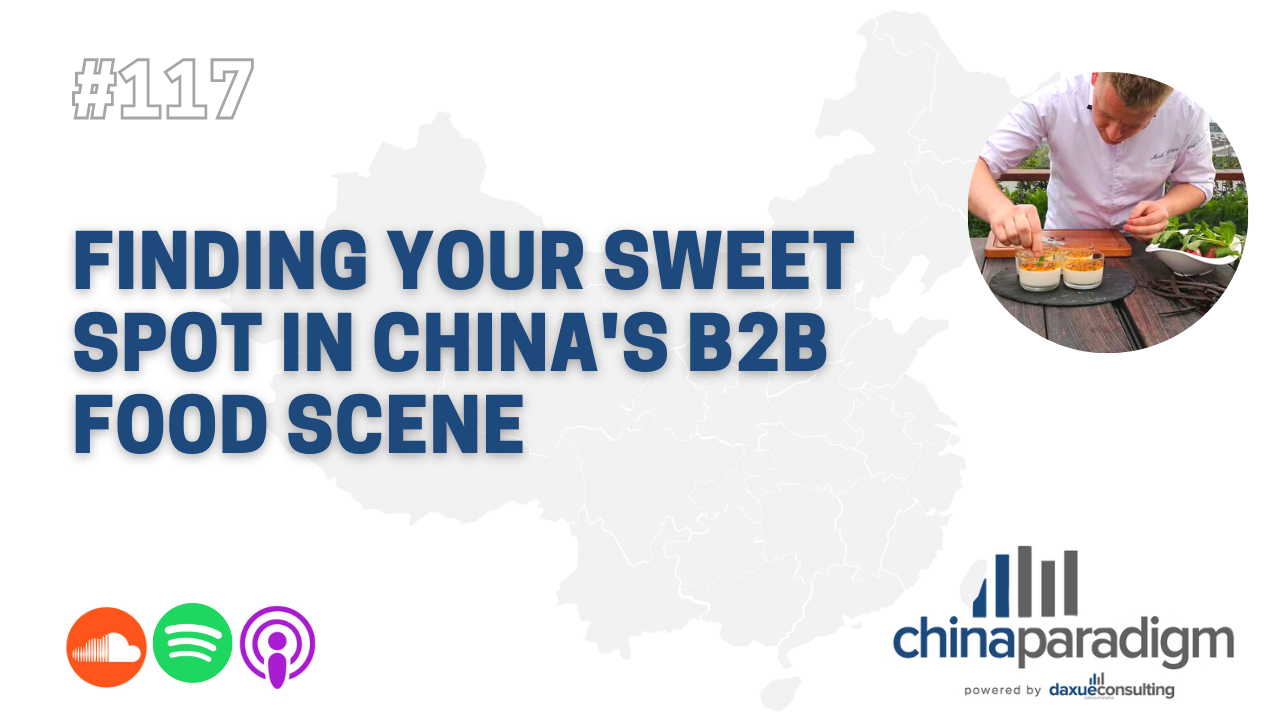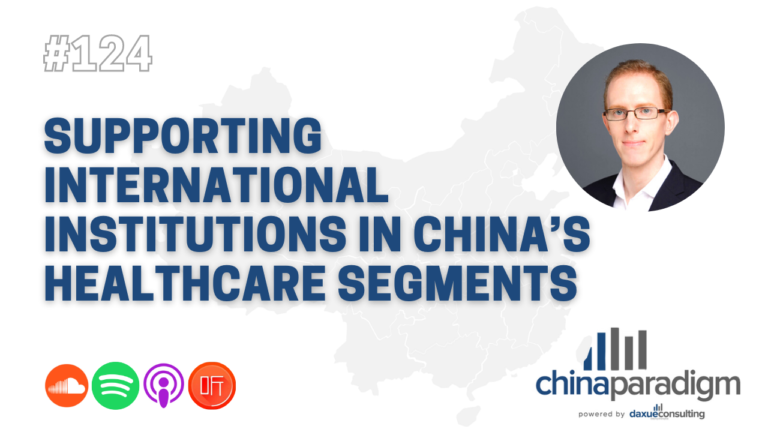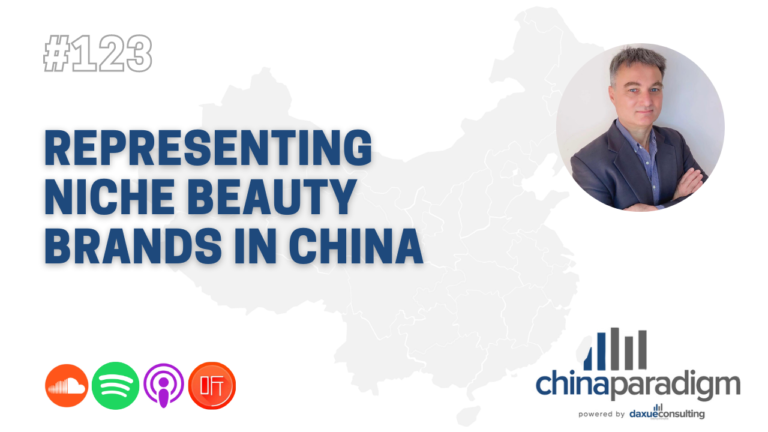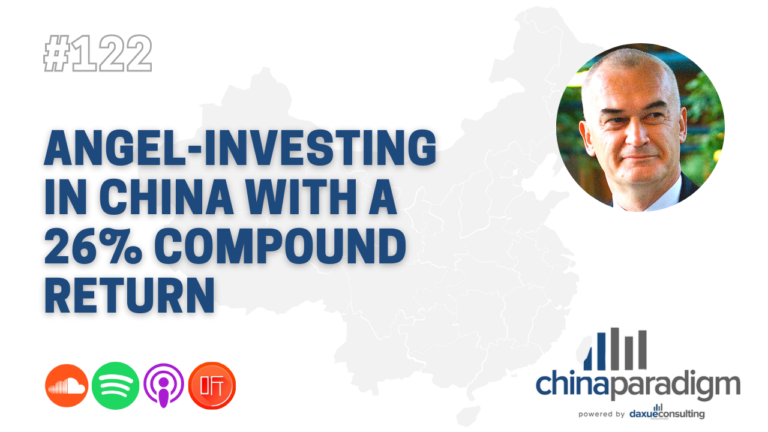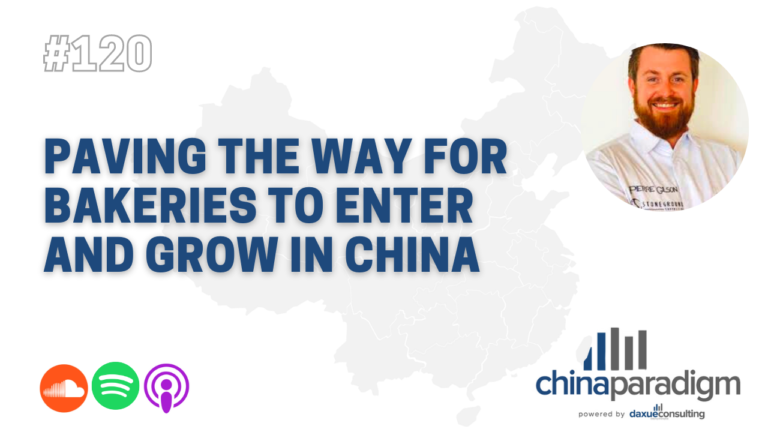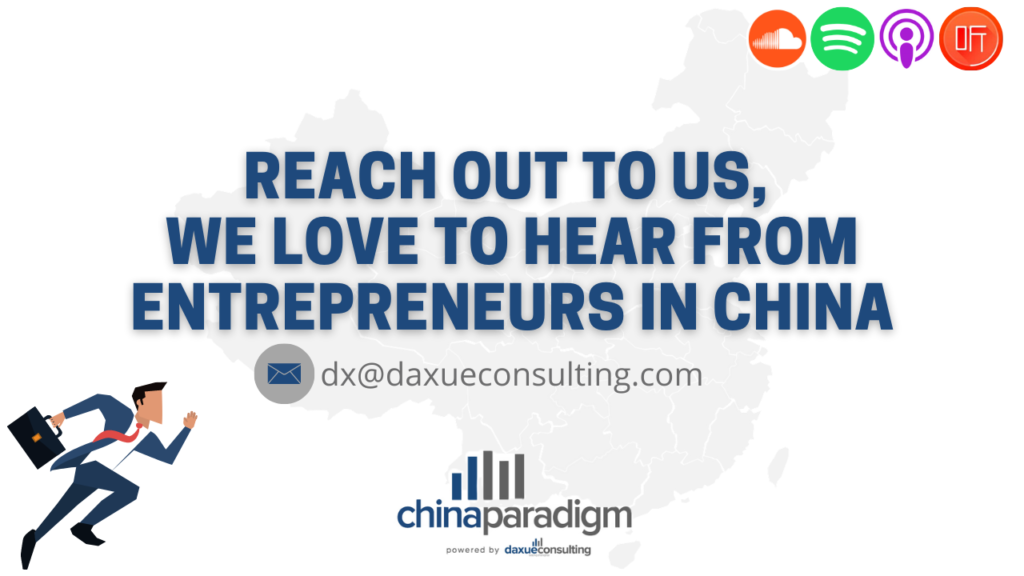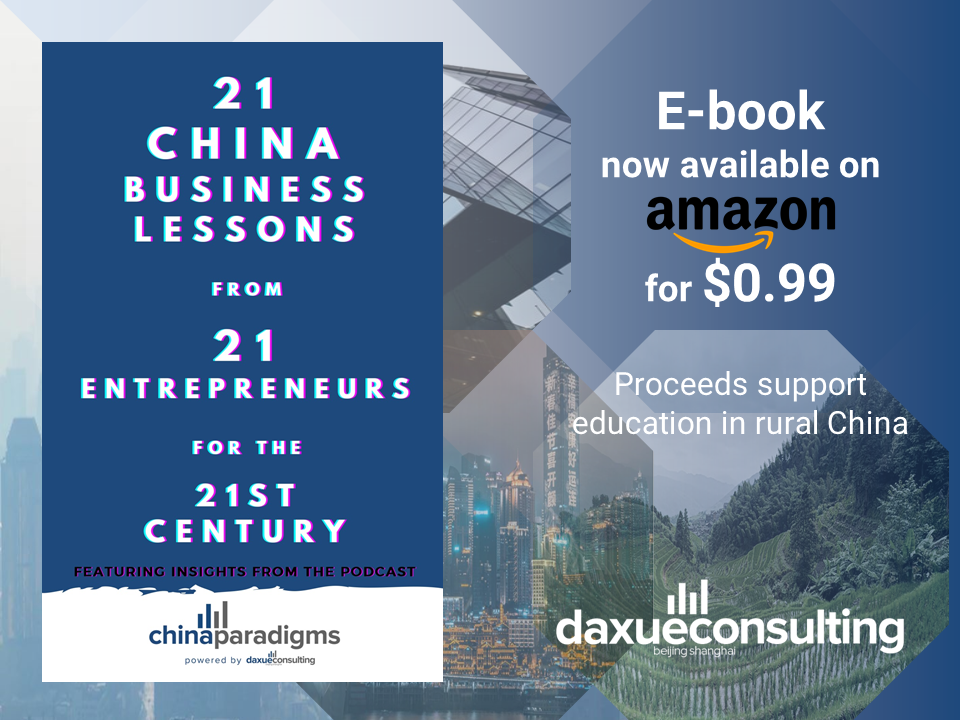Maik Juengst is a German chef and entrepreneur who started a gourmet food catering business in China in 2016. Maik’s Gourmet bases in Shenzhen. He creates food that is Western in origin and of high quality. Initially, he produced food only for businesses like hotels, restaurants, and cafes. However, with the advent of the Covid 19 virus and the subsequent closure of many businesses, Maik Juengst had to pivot and begin providing more business to consumer services. With Covid 19 now behind us in China, and both B2B and B2C channels up and running smoothly again, incredibly, Maik’s Gourmet is now in a better position financially than it was at this time last year!
Listen to the full China Paradigm episode 117 on Youtube, Apple Podcast, Spotify, Soundcloud, or Ximalaya.
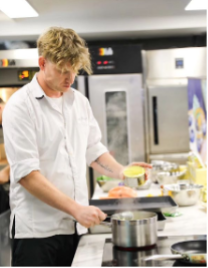
Idea development for his food catering business in China
Initially, Maik came from a hotel chef background where he would prepare buffets. He went into consulting, where he advised hotels on things like menu design. He began to develop the idea for his business. One day, Maik met with a friend who wanted to open a chain of restaurants in China. His friend did not want to spend the time and energy going to each restaurant and training each chef individually. Maik proposed to develop the food offsite, had it flash-frozen, and sent it to the restaurant within 24 hours. His friend loved the idea, and from there, Maik set about developing the business.
“One day, one of my friends, Matt, who has a food business in China which is basically a restaurant chain with stores doing a DIY pizza concept, said to me ‘I wanna open 100 stores but I’m not interested in going around teaching each chef how to cook pumpkin soup.’ This is when I had the bones of the idea already and when I brought my idea up, he liked it. So, he asked me to produce soup elsewhere, freeze it, and ship it to him. In his restaurant, it could be reheated and served. This way he could focus on marketing or customer experience, instead of teaching each chef how to roast a pumpkin and he could worry less about having bigger kitchens that would require lots of energy.
So, I went back to the drawing board and opened a little garage-kitchen, à la Bill Gates at Microsoft, in a little, unlicensed 40sq meter kitchen. We didn’t pay attention to legal issues at first because we were so small, we just wanted to test demand. It turns out demand was pretty high.”
Maik Juengst, German chef and entrepreneur who started Maik’s Gourmet
Bootstrapping his food catering business in China and its relationship with Hai Di Lao
In his own words, Maik bootstrapped the business à la Bill Gates building computers in his garage. Not satisfied with producing gourmet food in a garage, he rented small unlicensed kitchen space and began producing food offsite for clients. Maik Juengst decided to scale up with business going well and eventually partnered with Hai Di Lao, a chain of nationally famous hotpot restaurants.
Maik approached one of their Taiwanese managers and asked if they produced any Western dishes in their offsite factories. When he replied that they didn’t, Maik asked if he could produce some food products in their factories, and they agreed. The relationship has been very advantageous for Maik because:
- He can capitalize on Hai Di Lao’s extensive network of factories. (He doesn’t have to build and maintain relationships with dozens of factory owners across China in order to serve his own clients who spread across China.)
- Their factory compliance standards with Chinese food safety regulations. (There is a government food safety inspector in every Hai Di Lao factory.)
- He can leverage Hai Di Lao’s nationwide supply chain and logistics network. This allows him to have ordered food sent safely and within 48 hours in refrigerated lorries to any location in the country.
- Maik can do his own R&D inside the factories and develop new products using Hai Di Lao’s already existing R&D infrastructure.
- All of the above save time for Maik to focus on other things in the business, such as sourcing the highest quality ingredients, educating clients about his brand, and meeting with clients.
In return, Hai Di Lao gets another stream of income.
Food solutions Maik’s food catering business in China provides to other businesses
Having food produced offsite, delivered, re-heated, and then served allows businesses to allocate more space to the seating area and less to the kitchen area and assign more labor to customer-facing positions less to the kitchen. Moreover, it reduces the chance of produce becoming spoiled or having batches go awry and becoming un-servable. Some of the other challenges include cafes not having enough storage space to hold more than a day’s worth of food. In this situation, the delivery fee becomes unaffordable for these small eateries. However, Maik’s Gourmet also provides solutions. For instance, the catering business would recommend other products that the restaurant/café could include on their menu, which would reduce the delivery cost per single item. Maik bases these recommendations on his analysis of local competitors and the number of potential clients in the locality.
What does the future of the food business look like in China?
Maik believes more and more food businesses will move towards having food produced off-site. He also believes that the days of breakfast buffets and expensive lunch hotel buffets are behind us because of the high price and a large amount of time required of consumers. He also sees chains like Wagas and Baker & Spice providing strong opposition to traditional restaurants. In his opinion, food businesses that copy the Starbucks model but swap the importance of coffee for food will be advantageous. These 3 particular chains may be big enough to do their own menu design. Still, for smaller chains and single restaurants, solutions like those provided by Maik’s food catering business in China might prove to be key competitive advantages in the China food industry.
On reflection, Maik feels Shanghai may have been a more suitable location to start the business.
“I think our business model could have worked even better in Shanghai. There are so much more resources and big contracts to be made here. Scaling would be easier in Shanghai because the HQs of so many Chinese businesses are here.”
Maik Juengst, German chef and entrepreneur who started Maik’s Gourmet
Listen to the full China Paradigm episode 117 on Youtube, Apple Podcast, Spotify, Soundcloud, or Ximalaya.

